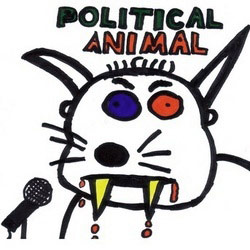Hello friend: if you read this post or look at it, make sure you have a look and this tumblr entry too. Please talk with your friends about the atrocities of animal sacrifices,be they for religious craziness or for whatever … http://niceswine.tumblr.com/post/12614331791/i-heard-about-the-killing-of-camels
Animal Rights: why there is a similar concern for establishing them alongside human rights
What do you feel are your rights dependent upon? The first instance when you learn about how important it is that you have rights is as a child. If you don’t have rights, anybody might marginalize you because you are weaker than them. Other humans can be in that negative sense the “stronger” ones, that they can potentially just violate the integrity of your individuality completely.
Your rights depend on the basis that the social context amongst which you live shows respect towards you, and accepts that you are weaker in some sense. Additionally the social context around you must leave you the space to “fulfil yourself” to a meaningful (for yourself) and reasonable extent.
Rights have basic social patterns which they require, in order to function “organically” almost. And even more, rights require in their social context and embedding a broader frame of fundamentals. Within this “frame of fundamentals” you will find the entire environmental contexts – nonhuman animals included at the forefront.
The environment is not something passive that is born out of causalities that started off with a big bang universe theory … and nonhuman animals are not the biological instinct bearers as the natural scientists might want to explain them in an oversimplified yet extraordinarily body-centred way. When we make assumptions about what is important in the assumed “instinctual life of an animal”, we just put our assumptions about the animal’s priorities right over them like a cloak under which the real animal will not become to be seen. When I understand that some bird species does some specific singing because he/she wants to mate, then I assume that is what is happening, but I should not claim my assumption to be mirroring the truth of the nonhuman animal. That what is not understood, what remains a world not fully understood by me, can still be a measuring standard in it’s own terms, even if outside my cognitive grasps reach.
Overall, the habitat in which we live is way too complex to be described in solely logical terms, even. On the irrational side yet again, that what we can see in nature is what religions have “sterilized” by setting against natures own (incomprehensive) complexity their single mighty god/divine concepts, as some all inclusive surrogates – with hidden features like a human miracle- producing brain that creates the world and universe and so on. In real life we all have a direct connection to the grandiosity of nature though, that basically totally independent of any prescribed views on it. After all we are part of this universe too. In our singularity. As lonesome single beings.
To come back to where I initially started, animal- and humans rights need each other to go hand in hand, because if we separate our desired rights as superior to what we might only see as the “needs” of animals, then we should ask ourselves: on which planet do we live and with whom are we dealing here? If we will stay and head into a prolonged thinking of us as the centre of the universe, then we will isolate our capacities of thinking and feeling to a perversely narrow circle of ourselves reflecting just what we want to see.















